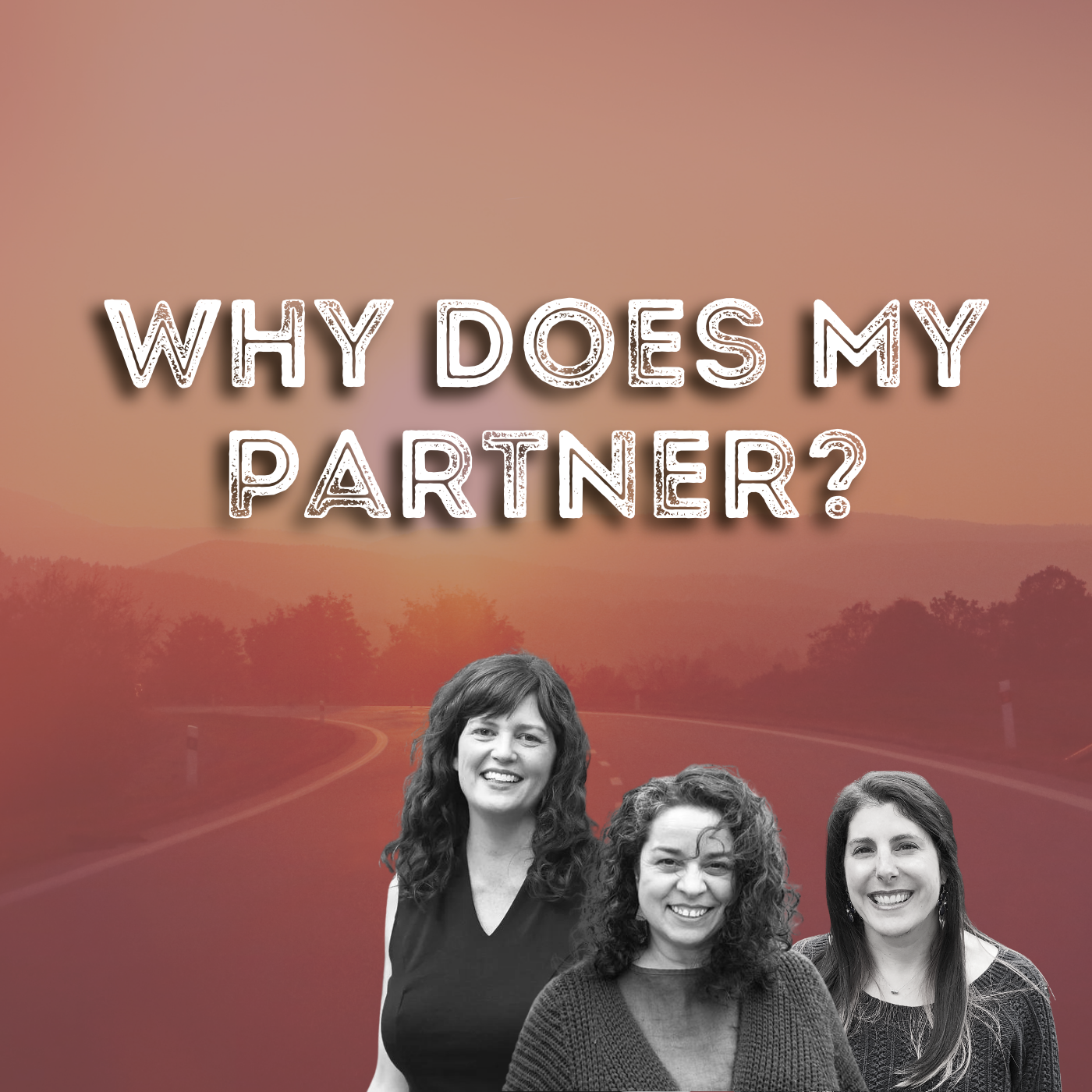We answer questions from people who want help in relationships. These questions echo the conversations that take place over and over again in our therapy offices and take us on a dive deep into the skills at the heart of relational intimacy, greater health, and fulfillment.
send us your question to explore on a future podcast episode
this podcast is not a substitute for therapy with a licensed provider

Neurodiverse Relationships
Today’s listener question comes from a partner in a neurodiverse couple, asking us to talk about navigating differences when one partner has neurological differences like Autism or ADHD, and the other is “neurotypical.”
Oh boy do we have thoughts and feelings about this! We end up spending a lot of time sharing how neurodiversity impacts our own lives, helping us discover that it’s not about one partner being different, but about accepting the reality that we’re different from each other. Inside of that, we find a lot of unspoken expectations, fears, and hurts, but…we also find a whole lot of amazing opportunities.

Why does my husband not see things in our house that are askew?
Our brains are taking in an incredible 11 million bits of information per second! Thank goodness we’ve got our salience neural network - system of neural connections -- that filters all of that down to an amount we can actually take in and process! But that also means that there’s actually a whole lot going around us that we never perceive on a conscious level. So how do our brains decide what to take in or not? What happens when your partner’s salience network isn’t taking in exactly the same things as yours? It’s episode 2 of season 6 of the Why Does My Partner Podcast, enjoy!

Isn't it fair to ask our partner not to scoff at us?
Here we are in season 6 of the Why Does My Partner podcast! We want to start out with a question we’ve been getting a lot, especially since our boundary mini-series (go back and give that a listen now if you haven’t already!). It goes something like this:
“I get that practicing boundaries means working to not personalize others’ actions, but also…isn’t it fair to ask them not to do something that doesn’t feel loving to me?”
Of course, it’s fair! Take a listen to this episode to hear our thoughts on just that, as well as how practicing your psychological boundaries can actually mean speaking up for yourself more, not less, plus much, much more!

Is There Something Wrong With Me For Not Wanting Physical Contact?
For this final episode of our bonus series on boundaries, our listener question is about struggling to say no to physical touch from their partner when they don’t feel like it, and wondering “is there something wrong with me when I want space?”
No, dear listener, there’s nothing wrong with you, and that goes for anyone listening who’s ever felt the same. It’s okay to want space sometimes, it’s okay to express what kind of touch does or doesn’t feel good to you, and more than anything, it’s ok to talk about these things.
So many of us have come from homes and cultures where we were never taught how to say no or have had experiences where we wanted to say no and couldn’t. When that history gets carried into our relationships, it can show up as unspoken feelings, resentment, and shame that gets in the way of having those open conversations that make sure there is real, enthusiastic consent.

Why Does My Partner Push Me Until I Lose It?
Y’all, this episode is jam packed. We’ve got not one but TWO questions from listeners that get us diving straight into you-turns, compassion practices, times out and times in, and so, so much more. Both questions start similarly: “why does my partner push me until I…” but once we scratch the surface, it’s not too long before we discover the real question: “When I feel pushed, why do I end up acting in ways that don’t feel good to me?”
That’s what boundaries are all about, folks. Keep listening for some practical tools that will help you develop the brain space to accept that your partner is not always going to behave in the way you want them to, and that’s just not something you’re going to be able to control. But when you learn to pause and treat yourself with compassion instead of harshness, you’ll start to find the space to make choices that allow you to live up to the version of yourself that you want to be.

Why Do I Feel So Bad When My Partner Gets Disappointed or Mad at Me?
This is a really special episode of WDMP to share with you! Our regular listeners know that we don’t shy away from sharing examples of our own relationship work on the show, but today Vickey takes it even further, signing herself up to do some psychological boundary work of her own right here, on air. As you follow along with Vickey, you’ll learn how to discern what really is or isn’t about you in a conflict, as well as how to listen with acceptance, allowing and valuing your partner having their own feelings and process, without feeling threatened or hurt.
These exercises are based on Jules’ new book Setting Boundaries that Stick: How Neurobiology Can Help You Rewire Your Brain to Feel Safe, Connected, and Empowered, available now for pre-order at all major booksellers. We’re also so grateful to Vickey for bravely sharing her process, and of course a HUGE thanks to her husband, Gabe, who also gave his blessing to share this with you, our listeners, even though he wasn’t there to record.
Finally, join us next week when we talk about containing boundaries!
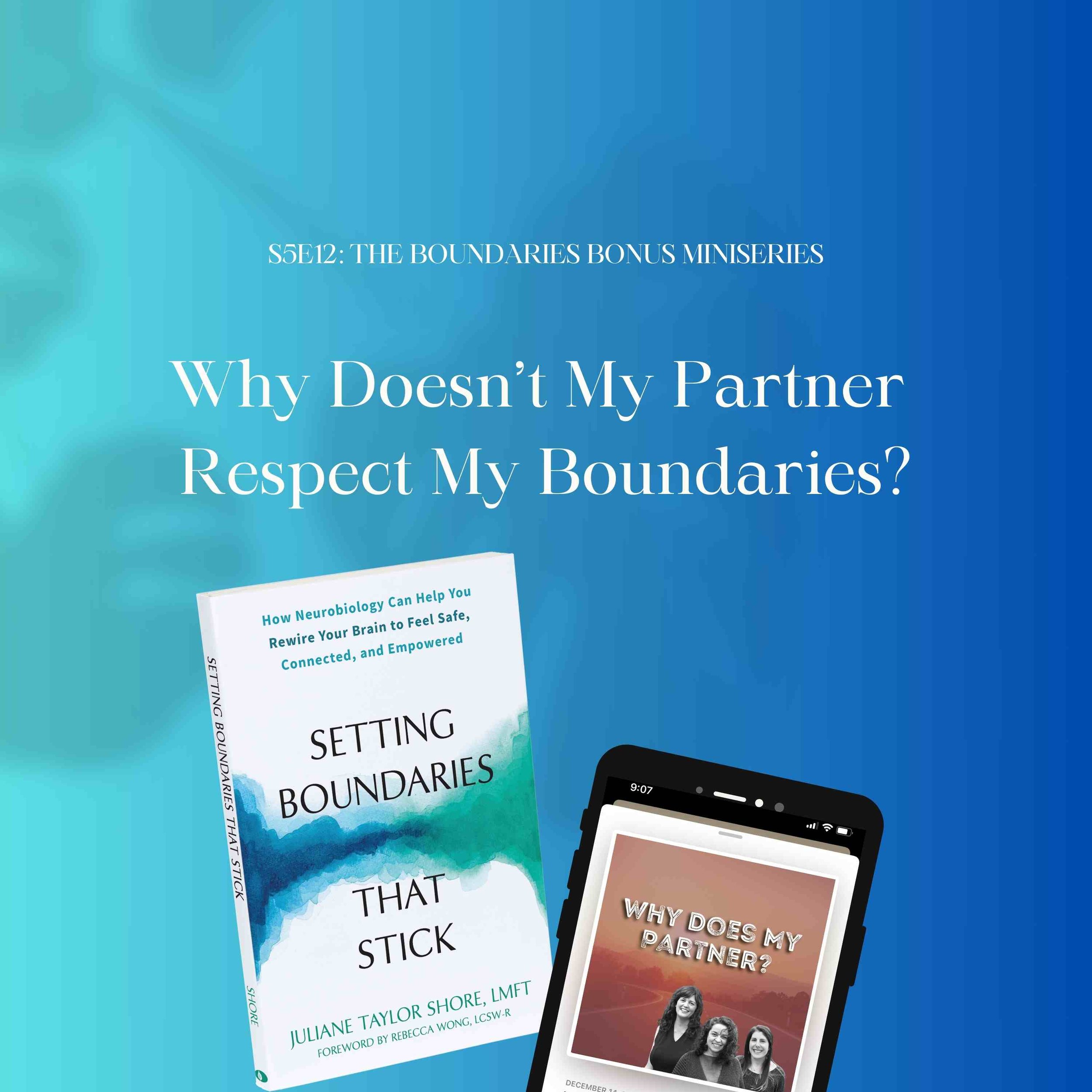
Respect My Boundaries
It’s episode 2 of our mini-series on boundaries, and we’ve got a listener question that we think a lot of our listeners are going to relate to. Truth is, boundaries aren’t about getting other people to do what you want. Actually, what they are about is deciding what you’re going to do when something happens that you don’t like, and then sticking to it. In this episode, we continue our discussion of Jules’ 6 steps for boundary setting with some guidance on communicating your needs and wants and how to create your plan for setting an external boundary. If you haven’t already, check out episode 1 on the mini-series to get caught up on our introduction to boundary-setting, and stay tuned for next week’s episode. We’ll be getting into what happens when boundaries are set, and how to deal with all of the feelings that come up, whether you’re the one setting the boundaries or the one having boundaries communicated to you.

6 Steps to Setting Boundaries
Guess what, Jules wrote a book! It’s called Setting Boundaries that Stick: How Neurobiology Can Help You Rewire Your Brain to Feel Safe, Connected, and Empowered, and to celebrate, we’re doing a five-part mini-series all about setting and maintaining boundaries that actually work. In this episode, Jules talks us through her 6 steps for setting external boundaries, or the boundaries that communicate to others what is and is not ok for you, the boundary setter. Join us to hear about why boundary setting is really all about you, not the other person, and stay tuned for more in episode 2, out next week.

Never Want to Celebrate Holidays or Major Milestones
It our final episode of season five, and the question we’re answering today is “Wouldn’t it just be easier if we were all the same?” Okay, that’s not exactly true, but we are talking about navigating differences within your partnership, especially when kids are part of the picture. The question starts off with a disagreement about how to mark holidays and important life events, which gets us wondering about the role of ritual and tradition in each of these partner's lives growing up, and the meaning they’ve taken from that into their lives together. What are the needs each of them is expressing inside of the strategies they are disagreeing about? If we explore those needs, we can start to get at all the implicit learnings that are coming in with them, transforming the argument into a creative collaboration.

Feel Okay With Getting Close When She's Leaving in Six Months
What if a relationship ending didn’t mean it was a failure? It’s our second-to-last episode of season 5. We’re answering a question that takes us inside some complicated relationship dynamics, from open relationships and polyamory to long distance and relationships with a time limit. We offer a big YOU-turn for you when you’re wondering what your partner is thinking or feeling about an issue and offer some compassion for your protective parts that want to “get you out of hard.” Finally, listen until the end to hear what each of us really thinks about open relationships. Spoiler: it’s three different things!

Have Trouble With My Feelings
It’s another two-fer episode today, with a pair of questions that have to do with partners interrupting or getting annoyed when the other partner wants to talk about feelings. Plus, we’ve got WDMP producer/music therapist Al Hoberman back on as a special guest!
When is it a good time to bring up 'feelings talk' in your house? During dinner? Before bed? While watching TV? A big part of having these kinds of conversations is knowing when your partner has the capacity to be there with you. And for the listener, it’s so much easier to have capacity when you know how the speaker wants you to be there for them. That’s why we’re spending so much time in this episode on having meta conversations about how and when you and your partner can show up for each other. That means learning to balance short term tension with long term pain, separating vulnerability from shame, and learning how to be with someone’s process.

Accuse Me of Invalidating His Feelings
Today we have an extra special episode of Why Does My Partner, as we welcome our special guest, Al Hoberman! Besides being the sound editor and producer of WDMP, Al is a music psychotherapist in private practice. He’s joining us for this listener question, which takes us down the rabbit hole of asking “Just what is a feeling anyway? How do you know when you’re having one, and what counts as ‘talking about them?’” We get into socialized gender roles, communicating without words, learning to tolerate disagreement, and creating a pausing practice to up your self-compassion.
Plus, finally we get to talk about Jules’ new book, Setting Boundaries That Stick: How Neurobiology Can Help You Rewire Your Brain to Feel Safe, Connected and Empowered. Available December 1st at a book seller near you!

Let Go of Focusing on the Relationship When Things in Their Life Get Stressful
What happens inside of your relationship when things in other parts of your life start to get stressful? Maybe it feels like you have less time to dedicate to your partner, or that your energy is just completely spent after a long day, and you just don’t have it in you to be present and relational. That’s the topic of today’s question, and it takes us into a conversation all about integrated vs. unintegrated brain states, windows of tolerance, and why scheduling your spontaneity is such an important part of cherishing your relationship.

Why Does Everything My Partner Does Irritate Me?
Congratulations! You’ve been working hard on this relationship, and it really feels like you’re getting to the next level. So why is it that everything your partner does is so darn annoying? If that’s happening for you, you’re not alone. In today’s episode, we’re discussing why we always seem to pick a partner who knows exactly how to push our buttons, and what that can tell us about our own psychological floor. Keep listening to learn about inner fix-it protectors, why we don’t believe in finding “the right one,” and how if everything your partner does annoys you, that could actually be a good sign.
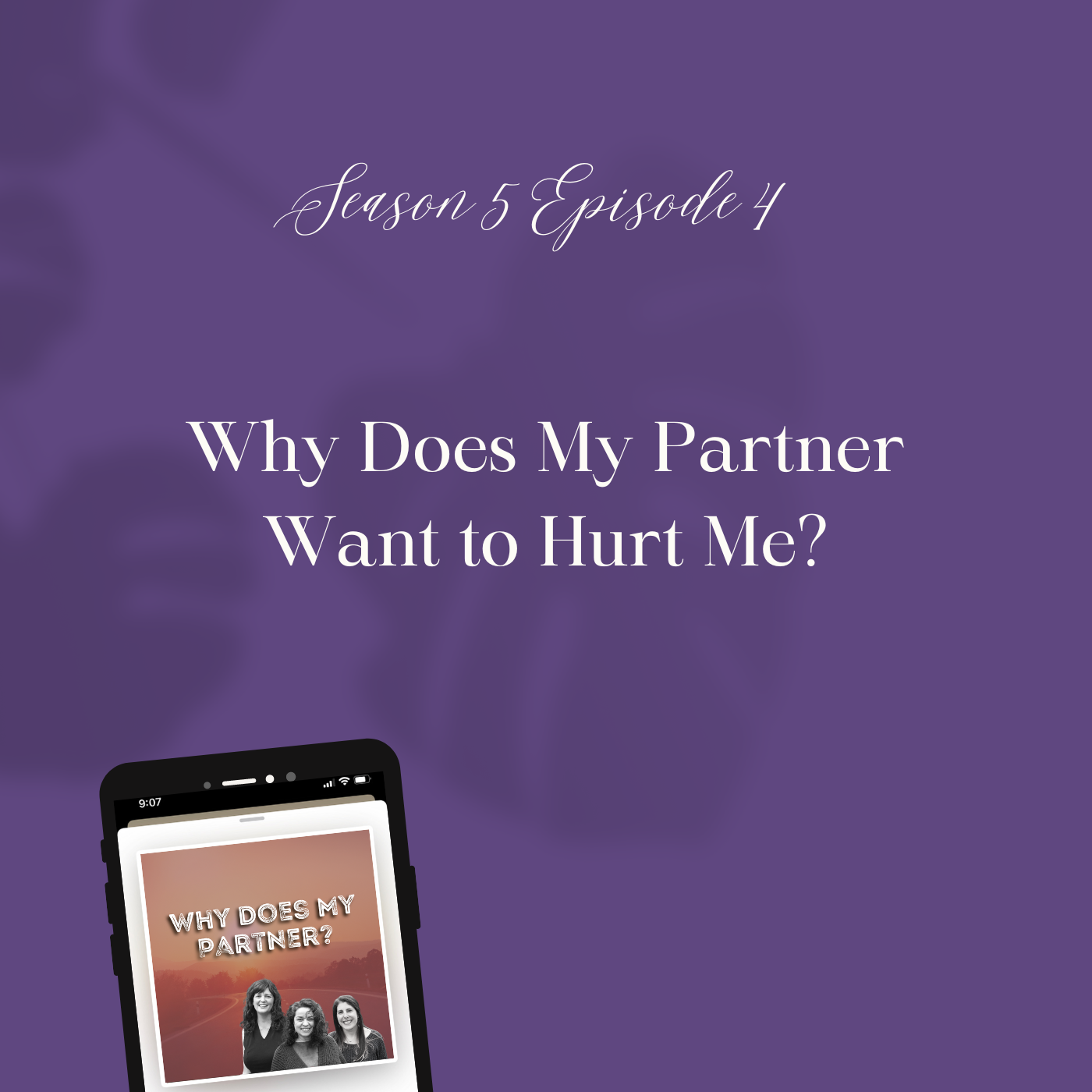
Want to Hurt Me
We talk about hurt a lot on this podcast, so much so that we released a whole mini-series called “Discord Builds Trust...No Really!” (Check it out if you haven't already!) So when this question came along, we had a lot of angles to cover. We discuss making YOU-turns on the stories we tell ourselves about what’s happening, and when lashing out is really about a deep desire to connect. We also talk healthy distance, and how sometimes compassion means taking care of yourself, not sticking around for the hope of relational safety.
The resource mentioned in this episode is the book Archaeology of the Mind by Jaak Panksepp and Lucy Biven.

Expect Fairness
What do apes, grapes, and celery have to do with each other? They’re all on today’s episode of the WDMP podcast! Our listener question brings us to exploring what lies beneath the desire for fairness, and what’s really being communicated when one partner is feeling resentful or underserved. Topics include what it means to attack from the victim position, inherited expectations, and flinging poo. No, really!

Want to Get Back Together After Breaking Up With Me
We’re not going to lie, today’s question hit home for a lot of us here at Why Does My Partner HQ. We’re sharing our stories of relationships where it was hard to let go as we respond to this listener, whose partner keeps breaking up with her and getting back together...now more than seven times.
There’s some big YOU-turns to be made in this story, and at the center of it all is the question, “What would happen if you said: ‘No, I don’t want this?‘” Would there be grief that you’ve been avoiding? Fear of being alone? These answers could be "yes" for either person in this story. And it could also be that there’s a process going on here, and in that back and forth, there’s some kind of learning or repair going on. So, the YOU-Turn is also about realizing that if that’s what’s happening, and it doesn’t feel okay for you, what’s the cost of letting it continue?
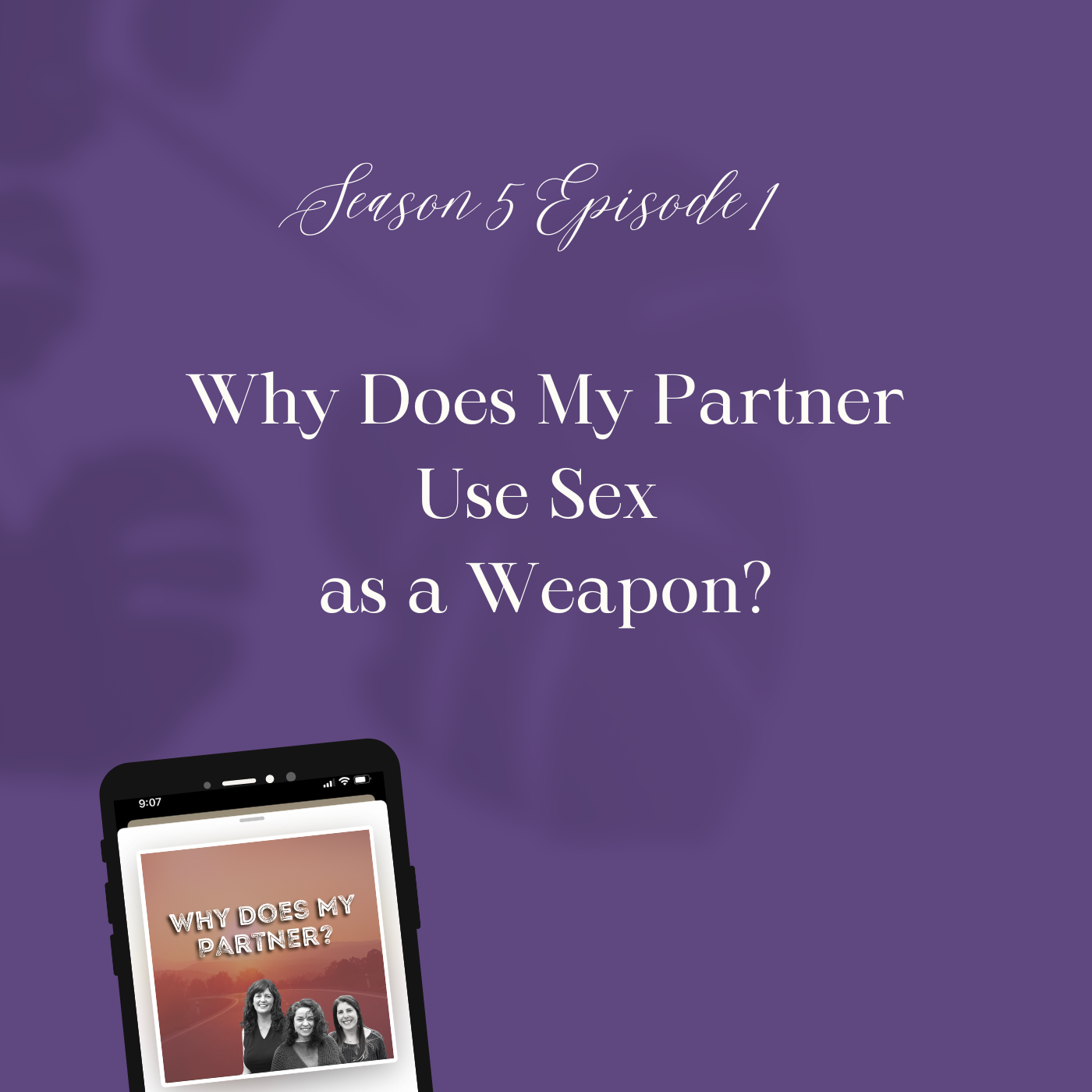
Why Does My Partner Use Sex as a Weapon?
Here we are with Season 5 of the Why Doesn’t My Partner podcast! This episode is about mismatch, but don’t let the title fool you - it’s not just about sex. It’s about the discomfort of experiencing mismatch in your partnership, and the shame of wanting something that maybe somewhere in your life, you’ve learned is not okay. Starting with this You-turn, we cover topics like discovering your psychological floor, and how to notice the subtle cues that tell you you’re nearing it. How do we open up about our ingrained beliefs around what’s okay when it comes to sex? What does it mean to move from a culture of shame to a culture of pleasure?
Today’s invitation is to start building a map of your relationship to sex, sexuality, and pleasure. What are all the things you’ve learned from your family, culture, society, and your past? Next, what do you know about your own desire? About what does or doesn’t feel good to you? And how has that changed over time? Because it probably has! Once you’ve done that, take a listen to the episode for an exercise you can do with your partner to get the conversation started.
Resources mentioned today are Sex When You Don't Feel Like It by Cyndi Darnell, Come as You Are by Emily Nagoski, and Magnificent Sex by Peggy J. Kleinplatz and A. Dana Ménard.

Why Am I the Only One Who Raises the Red Flag and Has to Say This Marriage Is Not Going Well?
Is there one person in your partnership that always brings up the issues? Whether that’s you or your partner, chances are there are some real feelings of disconnection and loneliness all around. On today’s episode, it’s all about how our attachment styles guide our gut instincts to either distance ourselves from conflict or try to smooth it over right away. We discuss what might be happening when there’s a mismatch between those two styles in a partnership, and how stepping up and learning to raise issues is an amazing way to show your partner that they’re being seen and heard. Of course, we offer you some tips on how to get into those conversations, and even discuss what to do to help short-circuit the anger and resentment that might be building up, helping both you and your partner come together more relationally.
We want to thank you all, our dear listeners for staying with us through this, our fourth and final episode of the Discord Builds Trust…No Really bonus mini-series! We hope that these episodes have inspired you to start leaning into the messy moments in your own lives, risking a little discord, and building a little trust…no, really!
Thanks again for listening, and we hope you join us again in just a couple of weeks for the launch of Season 5 on July 18th!
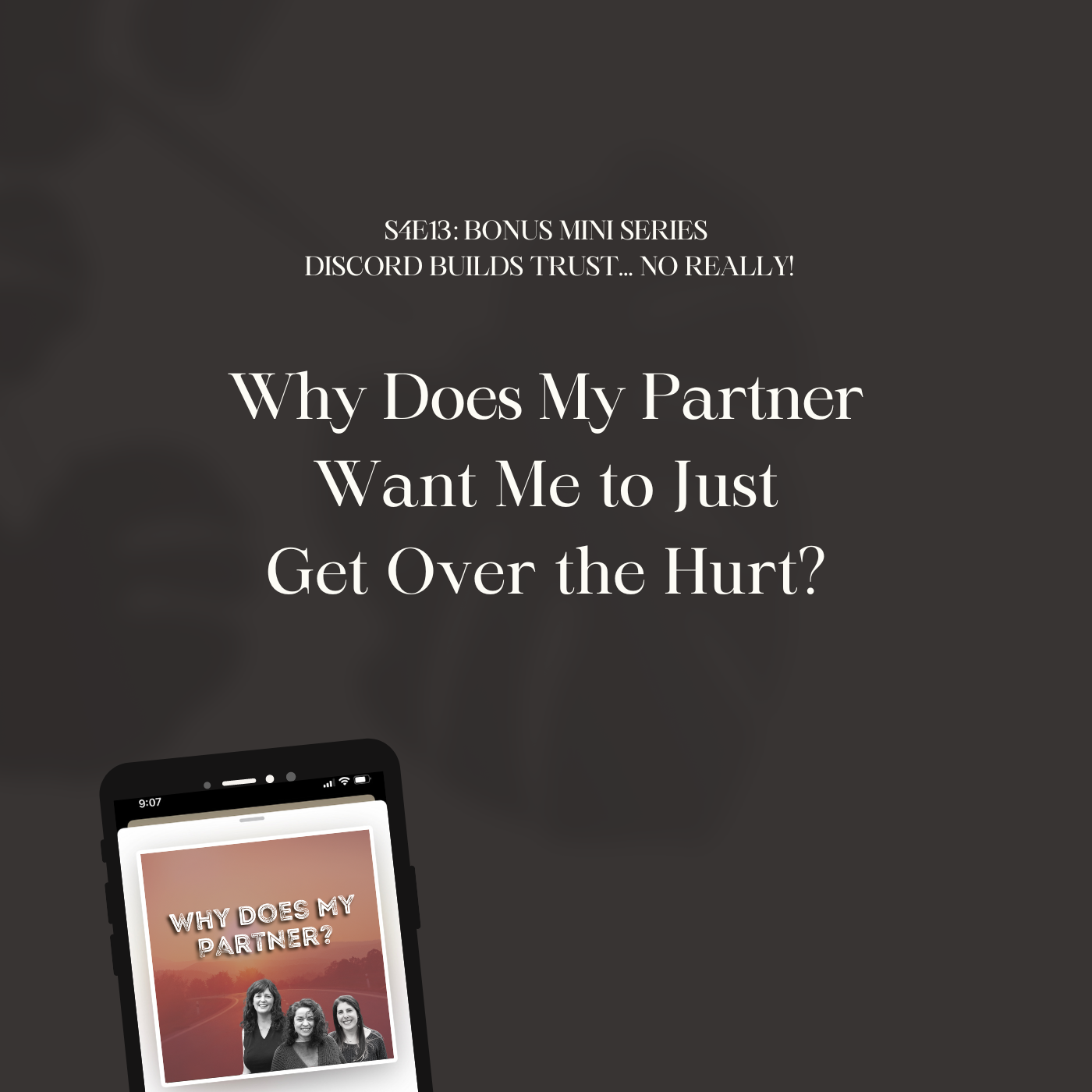
Want Me to Just Get Over the Hurt
Ok, so maybe we’ve convinced you that Discord Builds Trust (No Really!). You’re on board, you’re practicing sitting with your learned beliefs, and you're cultivating curiosity. Now the moment arrives. There’s disconnect, hurt, something went wrong. What do you do? How do you get out of this place and into the trust (no…really!)
On today’s episode of our mini-series, the question is “Why does my partner want me to just get over the hurt?” We start off flipping the question on its head and pointing out some unspoken feelings inside of that question, which takes us into picking apart the difference between toxic shame and remorse. Finally, we share some strategies for getting out of that shame pit and into a more relational space, ready for repair.
Check out this framework for apology and accountability from Mia Mingus, which we reference in today’s episode.
